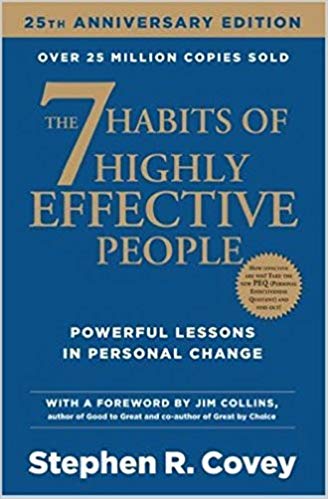

This article is an excerpt from the Shortform summary of "The 7 Habits of Highly Effective People" by Stephen Covey. Shortform has the world's best summaries of books you should be reading.
Like this article? Sign up for a free trial here .
What does it mean to live a principled life? Do you uphold any personal principles of behavior?
As the name suggests, principled living means abiding by certain principles or core values when making decisions and interacting with others. Many self-help gurus advocate that living a meaningful life entails defining and living by certain non-negotiable principles.
Read on to better understand principled living, with ideas drawn from various popular sources.
Home in on a Few Core Values
Numerous self-help and business books argue that people should uphold classical virtues and principles, which act as north stars, regardless of the time or place you are in. As Brene Brown explains in Dare to Lead, if you have too many values, they lose their meaning—but a few core values (she recommends two for business leaders) provide a clear, guiding force for your decisions and actions.
This advice to define core values applies to both personal improvement and business development, and it’s so foundational that it’s often the first step prescribed in making meaningful change. In the realm of self-help,
- The Compound Effect asserts that identifying your core values is key to making daily decisions that keep you on track to create the life you want.
- High Performance Habits echoes this, arguing that determining your top values is necessary to gain clarity about who you are and what you want out of life—and that clarity improves your self-esteem, motivation, confidence, and productivity.
Identifying core principles serves essentially the same purpose in business: Just as those values guide individuals’ actions, they also provide a north star for organizational decisions. However, since companies comprise many people and leaders, determining core values is often a group activity rather than an individual decision. There are numerous ways of doing this:
- Built to Last suggests asking employees to nominate five to seven colleagues who exemplify the organization’s core values. Then, gather the elected employees to hash out three to six values that will define the company in the long term.
- Traction takes a similar approach, without surveying staff: Think of three top performers in the organization, list their defining traits and values, then consolidate that list and pick out the three to seven values that characterize the company.
Principles Guide Growth
In his book The 7 Habits of Highly Effective People, Stephen Covey Covey briefly compares the way universal principles (e.g. fairness, integrity, honesty, growth, and patience) govern human growth and happiness to the way that the laws of physics govern the natural world. Let’s further explore this comparison:
- Physical laws (such as gravity) occur naturally, meaning that they are not invented but rather identified. Since engineers can’t change these laws, they’re forced to abide by them; if an engineer ignores the force of gravity while designing a bridge, the bridge will crumble.
- Similarly, universal principles are naturally occurring in the sense that they are innate in people across regions and generations (just think of a toddler’s insistence on fairness and justice). Common principles form the foundation of relationships and communities—if you don’t act in accordance with principles like honesty, the consequences could include damaged relationships or community backlash.
Covey argues that principles shape the objective reality, while your paradigms shape your interpretation of that reality—he uses a recurring analogy of paradigms as maps, and objective reality as the terrain itself. You use the map to navigate the terrain, but if your map isn’t to scale (as in, if your paradigm is not aligned with reality-defining principles) then you’ll face the consequences caused by that disparity.
Principled Living Doesn’t Guarantee Positive Results
In his argument for principle-centered paradigms, Covey focuses on how universal principles govern human behavior and societal functioning. This essentially says that principled living means acting in a way that’s in line with others’ norms and expectations. It makes sense that Covey would present this as the ideal because, his seven habits are designed to foster a paradigm of interdependence, which values independence while also recognizing that collaboration and cooperation can produce more than any individual can alone.
However, this argument is reductionist and glosses over numerous possibilities:
- Laws and policies may not hold up—and may even actively punish—principles like honesty and human dignity, especially under oppressive regimes. In those cases, a person could act based on principles and still face grave consequences. For example, a Chinese journalist named Zhang Zhan was arrested for reporting truthfully on the COVID-19 pandemic from Wuhan and scrutinizing the government’s response. Another example: Under Hitler’s reign, non-Jews could be persecuted for helping Jews.
- Cultural norms sometimes contradict universal principles. For instance, the consequences will probably be worse if you are honest and tell your mother-in-law that you hate her cooking than if you simply lie about it.
- Sometimes you can do everything right and still face bad luck. For example, you can be the model employee—constantly displaying principles like honesty and integrity—and still face layoffs or get fired by a tyrannical boss.
If you believe Covey’s assertion but fall into one of these exceptions, you’re likely to misdiagnose the issue: Did ou follow the wrong principle? Did you have the right principle but didn’t follow it closely enough?
———End of Preview———

Like what you just read? Read the rest of the world's best summary of "The 7 Habits of Highly Effective People" at Shortform . Learn the book's critical concepts in 20 minutes or less .
Here's what you'll find in our full The 7 Habits of Highly Effective People summary :
- How to prioritize the hundred tasks you have to focus on the one or two that really matter
- The right way to resolve every disagreement and argument
- How to avoid burning out and succeed over 20+ years






